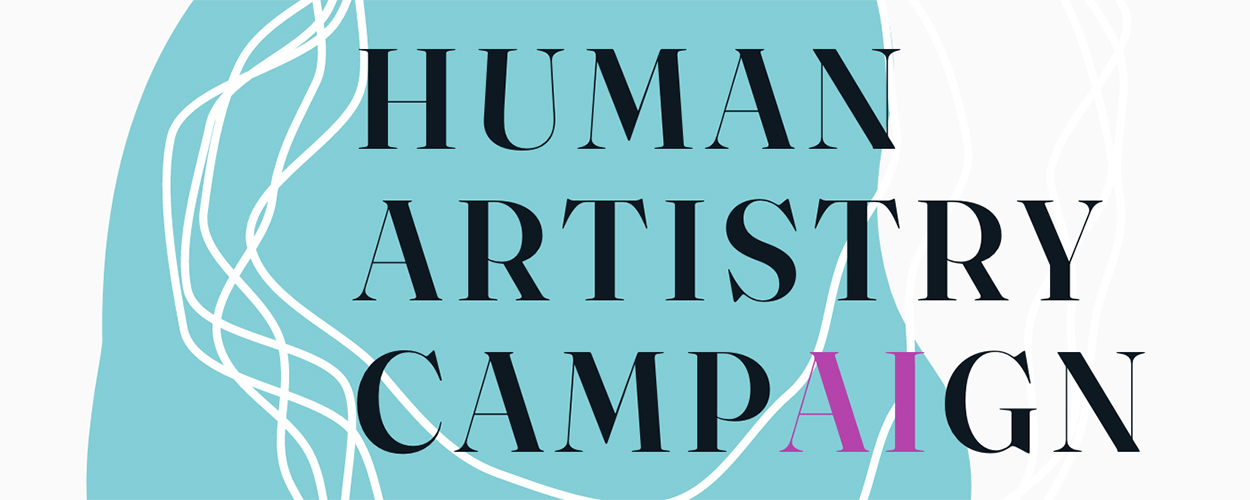This website uses cookies so that we can provide you with the best user experience possible. Cookie information is stored in your browser and performs functions such as recognising you when you return to our website and helping our team to understand which sections of the website you find most interesting and useful.
Business News CMU Digest
CMU Digest 19.03.23: Human Artistry Campaign, The Cure, SIAE, Hybe, Deezer
By Chris Cooke | Published on Sunday 19 March 2023

The key stories from the last week in the music business…
The US music industry set out some fundamental principles regarding generative AI via the Human Artistry Campaign. It follows a recent spike in interest in AI tools that can create original content, caused in no small part by the hype around ChatGPT. The new campaign – supported by a plethora of music industry organisations in the US and beyond – insists it embraces the opportunities created by generative AI, but it says certain principles are required to ensure new technologies don’t have a negative effect on human creativity. On copyright matters, the campaign argues that entirely AI generated works should not enjoy copyright protection and that the makers of AI tools should get licences from relevant copyright owners when they are mining data linked to existing content in order to train their technologies. Different copyright systems currently deal with these matters in different ways. The campaign also calls for full transparency about how AI technologies are being trained and used. [READ MORE]
The Cure’s Robert Smith got his fans a refund from Ticketmaster after a backlash over ticketing fees. The band are using Ticketmaster’s Verified Fan system to sell tickets for upcoming US shows, having been convinced that using that system would greatly reduce the number of tickets that end up being touted on the secondary market. But fans complained on social media about the fees Ticketmaster charges, which in some cases were higher than the actual face value price of the ticket. Posting on Twitter, Smith said artists had no control over the ticketing fees, but that he thought Ticketmaster’s high charges were “sickening” and he’d asked the Live Nation ticketing firm how they could justify them. In a subsequent tweet, Smith revealed that Ticketmaster had agreed the fees on The Cure shows were “unduly high” and that, therefore, fans would receive a $5-10 refund. [READ MORE]
Italian collecting society SIAE hit out at Meta after it started excluding the organisation’s repertoire from the Facebook and Instagram platforms. The exclusion comes amid new licensing negotiations between the society and the social media firm, with Meta’s most recent SIAE licence expiring at the start of the year. The society said in a statement: “Meta’s unilateral decision to exclude SIAE’s repertoire from its library has left Italian authors and publishers bewildered”. Also criticising Meta’s general conduct in those ongoing licensing talks, including a lack of transparency on the social media giant’s part, SIAE concluded by saying it “will not accept impositions from an entity that exploits its position of strength to obtain savings at the expense of the Italian creative industry”. [READ MORE]
The founder of K-pop powerhouse Hybe commented on his company’s decision to abandon a bid to take control of rival SM Entertainment. Hybe bought a 14.8% stake in SM via a deal with the latter company’s founder Lee Soo-man. He was unhappy with a decision by the current management at SM to issue new shares as part of an alliance with South Korean internet firm Kakao. Lee ultimately got the plan to issue new shares blocked in the courts, while Hybe announced its intent to buy up additional existing SM shares until it had a 40% controlling stake. However, after its initial deal with SM management was cancelled following the court order, Kakao also made an offer to buy up existing SM shares, offering a higher price than Hybe. The latter then confirmed it was dropping its bid to control SM. Its founder Bang Si-hyuk told journalists that the “competitive and overheated battle” for control of SM hadn’t been expected and it wasn’t something Hybe wanted to participate in. Instead, he said, the company was now focused on pursuing further acquisitions in the US market. [READ MORE]
Universal Music formally announced that it is investigating alternative business models for streaming with Deezer. It follows the memo from Lucian Grainge earlier this year in which the Universal boss said that the way streaming monies are shared out across the music community each month needs to be reviewed. He didn’t provide many specifics in that memo, but seemed most aggrieved that mood music and background noise is treated the same as more conventional music for royalty distribution purposes. Universal previously announced a partnership with Tidal to investigate alternative approaches and then teased a similar alliance with Deezer on an investor call. Formally launching the latter alliance, Deezer chief Jeronimo Folgueira said: “As a key player in the music industry, we work with all labels to find ways to make the ecosystem fairer and help artists monetise their music better”. Both Tidal and Deezer previously expressed support for the so called user-centric system for distributing streaming royalties, though that doesn’t seem to be an option under consideration in these new investigations. [READ MORE]





